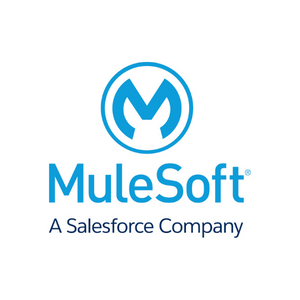What are the key challenges impacting digital health innovation right now?
The number one challenge is how to deliver innovation without impacting frontline care. For example, a current priority is to define clear transparent standards to drive interoperability. Defining standards helps create a common language between applications and systems, but bending systems and applications to meet standards stifles innovation. Without the right approach, there will be friction, and as a result, innovation is suppressed, projects delayed, frontline care suffers, and patients suffer.
How is technology helping to address these challenges and open up new opportunities?
Technology can help us address the challenges, but technology is only a small part of opening new opportunities. A strategic interoperability strategy provides the right data type, in the right amount, to the right person, at the right time, in the right workflow. Adopting the latest technologies enables us to get data out of any system, whether it is via integration or the latest RPA tooling. This helps us tackle a fundamental challenge: How can the NHS unlock local data making it visible regionally and nationally?
The answer? Let a system do what it is designed to do, but when we extract the data from a system, we own the task of transforming that data to meet the standards. This approach allows frontline care to focus on systems that improve patient care; whilst still extracting the data in the format needed.
The impact of data fluidity and achieving interoperability across the health and social care ecosystem would allow us to open up many opportunities from chronic health management (virtual wards and digital health monitoring) to acute care coordination (elective care, bed space capacity, and ambulance dispatching).
Tell us a little about what insights you will be sharing at the LHIS22 event, and why this is so important?
Our discussion at 9:30 am will focus on how we can deliver strategic initiatives whilst delivering incremental value to ensure immediate benefits while moving towards a strategic goal.
Let us take a real-life example with the global Ambulance crisis, and how solving a “today problem” is aligned to the NHS data strategy.
We have three hospitals:
- Hospital A manages bed space with spreadsheets
- Hospital B manages bed space using an in-house system
- Hospital C manages bed space using EHR System
All this information is held in different formats, and each hospital has its own solution that delivers the frontline care they are giving.
We want to extract that data into a national Data Lake to understand usage and optimise care. We don’t want to impact frontline care, and we can’t enforce standards on these systems because:
- In our example, it is near impossible as it isn’t practicable to anticipate a spreadsheet vendor to change its integration capabilities
- Even if possible, we would be making changes at a local level for no benefit for the ICS.
That is why we don’t touch these systems and put an API layer above them that translates the data from how each system holds it to how we want it within the NHS. We haven’t impacted the existing system, and we are on our way to a national strategy for understanding usage and getting local data visible nationally.
In addition to surfacing the data nationally consistently, we have now opened this up for ICSs to use this data for the Ambulance Driver’s onboard application to decide where there is space available to treat the patient. This gives them information to make a decision where minutes matter.
Each system at hospitals A, B, and C has an API exposed in the national data standard. We can combine this information in a single API to view spaces. As an Ambulance Driver, my onboard App calls the API that shows me real-time space availability in the local hospitals at an ICS, regional and national level.
I can now make a decision where minutes matter.
This is just one example of how we can deliver incremental value while moving towards a strategic goal and improving the delivery of care.
Mulesoft will be speaking at the upcoming Leading Healthcare Innovation Summit on the 9:30 session: “Shared Care Records and Data Analytics as a Driver for Innovation – Bringing Research and Treatment Closer Together"

Produced by MuleSoft
MuleSoft are official supporters of HETT | Leading Healthcare Innovation Summit
Download our free whitepaper to:
• Discover how healthcare providers truly deliver against improving patient outcomes whilst reducing the costs to deliver these results
• Understand healthcare challenges in patient engagement, clinical workflow, and care coordination
• Uncover the integration needs associated with each of these healthcare challenges and how to overcome them
To read more about MuleSoft, click here.
%20(1).png?width=500&height=58&name=HETT%20insights%20logo%20RGB-04%20(1)%20(1).png)
